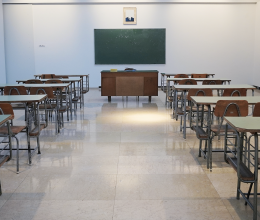Last week, the public radio show “This American Life” dedicated an entire show to the connection between school discipline policies and involvement in our criminal justice system, a phenomenon known as the school-to-prison-pipeline.
During the last three decades, the wave of punitiveness that swept our nation, known as the “tough on crime” movement, also began to seep into our public schools. We saw a proliferation of zero-tolerance policies that imposed harsh penalties on certain behaviors regardless of circumstances. In 1974 there were 1,700,000 school suspensions; by 2003 that number had nearky doubled to 3,100,000.
This episode of “This American Life" focused on the disparate impact of these harsh school discipline policies on students of color. Nationally, black students make up 16% of the student population but 42% of students who have multiple suspensions and 31% of school-related arrests. Shockingly, in the course of their investigation, the show found that many of these disparities had begun as early as preschool.
While the findings cited in the show focused on the Texas and New York systems, it is important to note that these disparities exist in Maine as well. While black youth make up just 1.2% of the Maine population under 18, they represent 5% of in-school suspensions and 5.5% of out-of-school suspensions – almost five times their representation in the population. According to information collected by the Office of Civil Rights Data Collections, while black students account for just 29% of the Lewiston school district population, they make up 60% of referrals to law enforcement. In the Bangor school district, black students make up 2% of the population but 16.7% of the student population with more than one out-of-school suspension.
Once inside the juvenile justice system, the majority of young people are unable to extricate themselves, beginning a vicious cycle often funneling them directly into the adult justice system. If we want to dismantle our system of mass incarceration, nationwide and here in Maine, it is imperative that we do better by our youth.







